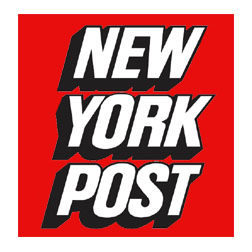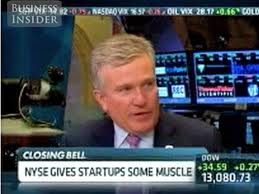BrokerDealer.com blog update courtesy of extracts from Bloomberg LP and Traders Magazine
(Bloomberg) — Citigroup Inc., the third-biggest U.S. brokerdealer, told regulators they could steer more stock trading to public exchanges by making it more affordable.
The bank suggested the U.S. Securities and Exchange Commission cut the highest amount that can be levied to trade by at least two-thirds, according to a letter from Daniel Keegan, head of Americas equities at Citigroup. Most exchanges charge the maximum, 30 cents per 100 shares, leading traders to favor lower-cost dark pools, he wrote. His statement aligns Citigroup, which runs alternative trading platforms, with two of the biggest exchange operators.
As part of a rule change that took effect in 2007, the SEC “somewhat arbitrarily established a cap on access fees that can be charged to access liquidity on exchanges,” Keegan wrote in an Aug. 7 letter posted on the regulator’s website. “This cap should be revisited in light of today’s market economics.”
More than 15 percent of U.S. equity volume takes place on dark pools, according to Tabb Group LLC. NYSE Group Inc. and Nasdaq OMX Group Inc., two of the three big U.S. stock exchange owners, have both advocated regulatory measures to lure trading off the systems. Accusations of wrongdoing on the private systems have intensified this year amid Michael Lewis’s “Flash Boys” and a probe by New York’s attorney general, who alleged Barclays Plc misled its dark-pool clients.
Dark pools proliferated in the past decade as brokers sought to reduce the amount of money they pay the NYSE and Nasdaq Stock Market. Instead of giving exchanges trading fees, brokers could match buyers and sellers on their own systems.
The SEC’s Regulation NMS, which took effect in 2007, helped solidify that business model by allowing stock trades to occur on whatever market had the best price at a given time, be it public or private. Reg NMS also set the maximum exchange access fee at 30 cents per 100 shares, also known as 30 mils.
Citigroup’s LavaFlow Inc. division runs the 10th-biggest alternative trading system for U.S. stocks and charges 28 mils for shares priced above $1. It’s an electronic communication network, not a dark pool, meaning more data about trading is publicly available.
Citigroup’s suggestion of reducing the access-fee cap to 10 mils or lower could also restrain rebates that exchanges pay traders who facilitate transactions, a practice known as maker- taker that has been attacked by lawmakers and critics such as IEX Group Inc. and the chief executive officer of NYSE’s owner, Intercontinental Exchange Inc.
Rewarding Brokers
Stock markets use fees from traders to reward brokers who send them orders, a model some academics and money managers such as Invesco Ltd. and T. Rowe Price Group Inc. say creates a conflict of interest. Last month, Senator Carl Levin, a Michigan Democrat, told the SEC it should abolish the payments to improve confidence in U.S. stock markets.
Jeffrey Sprecher, the CEO of ICE, said during a recent congressional roundtable that exchange access fees should be reduced. His company, as well as Nasdaq, have endorsed a proposal called the trade-at rule, which would keep stock trades off dark pools unless those venues improved upon prices available on exchanges.
Nasdaq, operator of the largest exchange by volume, generated $1.1 billion in revenue from U.S. equities transactions in 2013 and gave out $743 million in rebates, according to an SEC filing. The comparable figures at NYSE Euronext, the owner of the New York Stock Exchange that ICE bought in November 2013, were $1.06 billion and $796 million, respectively, in 2012.



